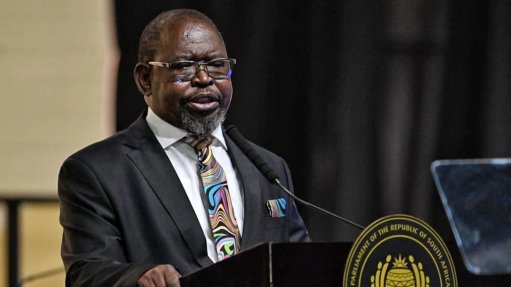Partnerships and new thinking needed for regenerative-city plans to prevail

Energy Intensive User Group project director and adviser Shaun Nel gives his view on how regenerative cities could be a success. Camerawork: Nicholas Boyd. Editing: Shane Williams.
Strong consensus emerged at a recent Infrastructure Dialogues gathering, which took place in Midrand, in August, that a combination of behavioural change and partnerships between the private sector, civil society and government is needed in order for city-level regenerative initiatives to have any chance of success.
The concept of ‘regenerative cities’ entails cities becoming environmentally resilient and economically stable, as well as improving the living conditions for residents and reducing the cities’ carbon footprint.
The future beyond sustainability and the efficiency of cities continue to be of interest and concern, particularly the challenges and opportunities regarding urban policy, planning, design, engineering, development and management.
The audience at the gathering highlighted their concerns, such as that city dwellers need more direction and awareness on how to and why they should adopt greener behaviour to reduce individual carbon emissions at residential level.
At the event, Energy Intensive User Group (EIUG) project director and adviser Shaun Nel explained that a possible solution was to change the structure of the South African economy and the country’s energy mix.
“The opportunity for regenerative cities exists where people and communities have not previously had access to electricity and where Eskom’s retired and retiring power stations can be replaced with new renewable-energy solutions,” he says.
In 2009, South Africa signed the Copenhagen Accord to reduce its carbon emissions by 37% in 2015 and by 42% by 2025, most of which needs to happen at city level.
To this end, the Department of Environ-mental Affairs is undertaking a national study to investigate available mitigation options across the country to reduce emissions. The department is under-going a carbon budgeting process to find ways of forcing organisations to reduce their carbon emissions.
“One such solution being considered is carbon tax. The EUIG does not consider this to be a solution, as the cost will be passed on to the consumer and emissions will not be reduced. What can work, however, is an emissions cap, which will limit the amount of emissions allowed for an organisation,” he says.
Internationally, the key urban imperatives for regenerative urban development are well defined – energy sufficiency and renewable-energy systems, water security, zero waste, food security, sustainable transport, green business, biodiversity and green behaviour.
The audience at the Infrastructure Dialogues indicated that focusing on developing emerging cities as regenerative cities to militate against the high cost of future interventions and the integration of the many plans the country had to transition into a green economy were possible solutions.
Article Enquiry
Email Article
Save Article
Feedback
To advertise email advertising@creamermedia.co.za or click here
Press Office
Announcements
What's On
Subscribe to improve your user experience...
Option 1 (equivalent of R125 a month):
Receive a weekly copy of Creamer Media's Engineering News & Mining Weekly magazine
(print copy for those in South Africa and e-magazine for those outside of South Africa)
Receive daily email newsletters
Access to full search results
Access archive of magazine back copies
Access to Projects in Progress
Access to ONE Research Report of your choice in PDF format
Option 2 (equivalent of R375 a month):
All benefits from Option 1
PLUS
Access to Creamer Media's Research Channel Africa for ALL Research Reports, in PDF format, on various industrial and mining sectors
including Electricity; Water; Energy Transition; Hydrogen; Roads, Rail and Ports; Coal; Gold; Platinum; Battery Metals; etc.
Already a subscriber?
Forgotten your password?
Receive weekly copy of Creamer Media's Engineering News & Mining Weekly magazine (print copy for those in South Africa and e-magazine for those outside of South Africa)
➕
Recieve daily email newsletters
➕
Access to full search results
➕
Access archive of magazine back copies
➕
Access to Projects in Progress
➕
Access to ONE Research Report of your choice in PDF format
RESEARCH CHANNEL AFRICA
R4500 (equivalent of R375 a month)
SUBSCRIBEAll benefits from Option 1
➕
Access to Creamer Media's Research Channel Africa for ALL Research Reports on various industrial and mining sectors, in PDF format, including on:
Electricity
➕
Water
➕
Energy Transition
➕
Hydrogen
➕
Roads, Rail and Ports
➕
Coal
➕
Gold
➕
Platinum
➕
Battery Metals
➕
etc.
Receive all benefits from Option 1 or Option 2 delivered to numerous people at your company
➕
Multiple User names and Passwords for simultaneous log-ins
➕
Intranet integration access to all in your organisation



















